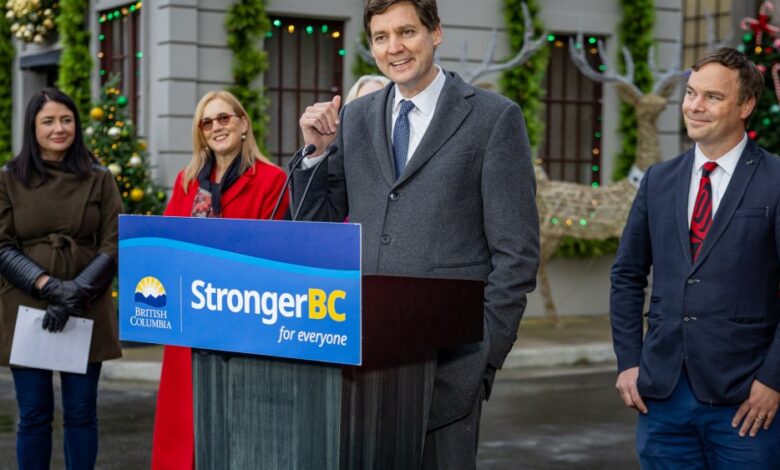British Columbia will increase film subsidies to cope with production decline

British Columbia’s premier announced a significant increase in tax credits for film and TV on Thursday, as the province faces a sharp decline in production.
Prime Minister David Eby said the production services tax credit – which goes to international productions – will rise from 28% to 36%. Domestic credit will also increase from 35% to 36%.
In making the announcement, Eby said British Columbia must do more to compete with other jurisdictions. The local industry has suffered the same downturn that has sidelined film workers around the world.
“This is an industry that has taken some hits,” Eby said at a news conference. “The decision by major studios to cut some of their budgets on productions, the impact of labor disruptions and other jurisdictions competing with British Columbia for these productions with significant subsidies to the industry, means we must respond. We must remain competitive and be a world leader.”
British Columbia launched its film incentive in 1998 and has since become a major hub for TV production, including Hallmark movies, Netflix’s “Virgin River,” HBO’s “The Last of Us” and “Shōgun” on FX. The latest proposal is mainly aimed at luring major productions, with a 2% bonus going to those with a budget of more than US$140 million (CA$200 million).
The province spent US$640 million (CA$909 million) on film incentives in the 2023-2024 fiscal year, with about 80% of that going to foreign productions. The increase — if approved in next year’s budget process — would bring it to US$843 million (CA$1.2 billion), according to a Treasury Department estimate. The increase will take effect retroactively on January 1, Eby said.
The move comes weeks after California Governor Gavin Newsom pledged to increase the state’s tax breaks from $330 million a year to $750 million. (California’s population is seven times larger than British Columbia’s, and its economy is 18 times larger.)
As with Eby, Newsom said the increase was necessary to compete with other jurisdictions and stem a decline in production volume. The California Legislature must approve the increase next year, and it would take effect July 1.
New York also increased its stimulus payment to $700 million last year.
Several BC leaders went on a trade mission to Los Angeles in November, part of an effort to convince Hollywood studio executives to bring more productions to the province.
“All they said to us was, ‘We want to make sure you’re fiscally competitive,’” Spencer Chandra Herbert, minister of tourism, arts, culture and sports, said at the news conference. “We also want to be fiscally competitive. … They said if you can make that happen, we’ll bring big productions here.”
The SAG-AFTRA and Writers Guild of America strikes had a significant impact on British Columbia’s film sector as employment fell from 37,000 to 26,000 by 2023, according to Creative BC, which administers the incentives.
Crystal Braunwarth, the business representative at IATSE Local 891, said workers have been forced to dip into their savings, retire early and even change careers, while production has fallen 40%. She called the announcement an “important milestone” that will help get people back to work.
“It’s not a race to the bottom,” she says. “It’s job creation that benefits British Columbians and invests in the people.”
Eby’s New Democratic Party won a slim majority in October’s elections, extending his term as prime minister. He had that promised to increase the film incentive during the campaign.
At the press conference, Eby was also asked to respond to newly elected President Donald Trump’s threat to impose a 25% tariff on all Canadian goods. He said Canada would impose retaliatory tariffs if Trump persists.
“We will do our best to respond,” he said.




